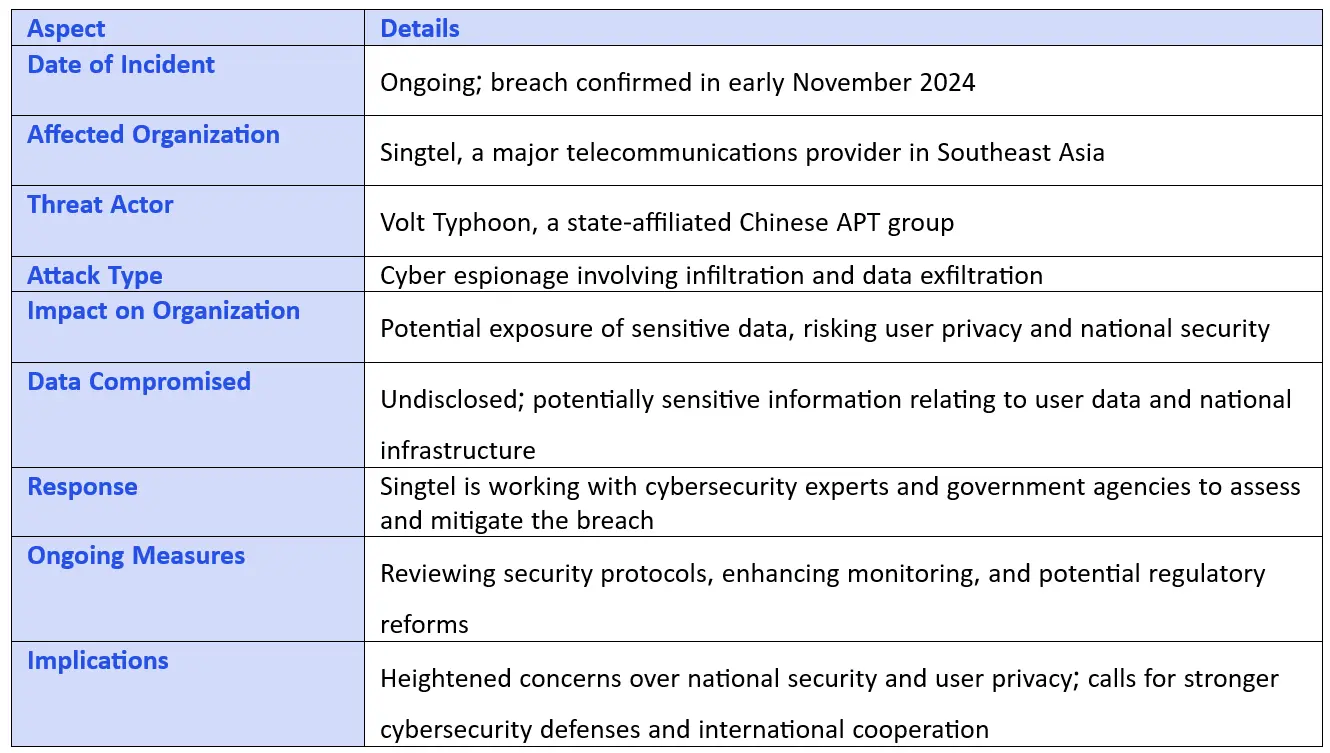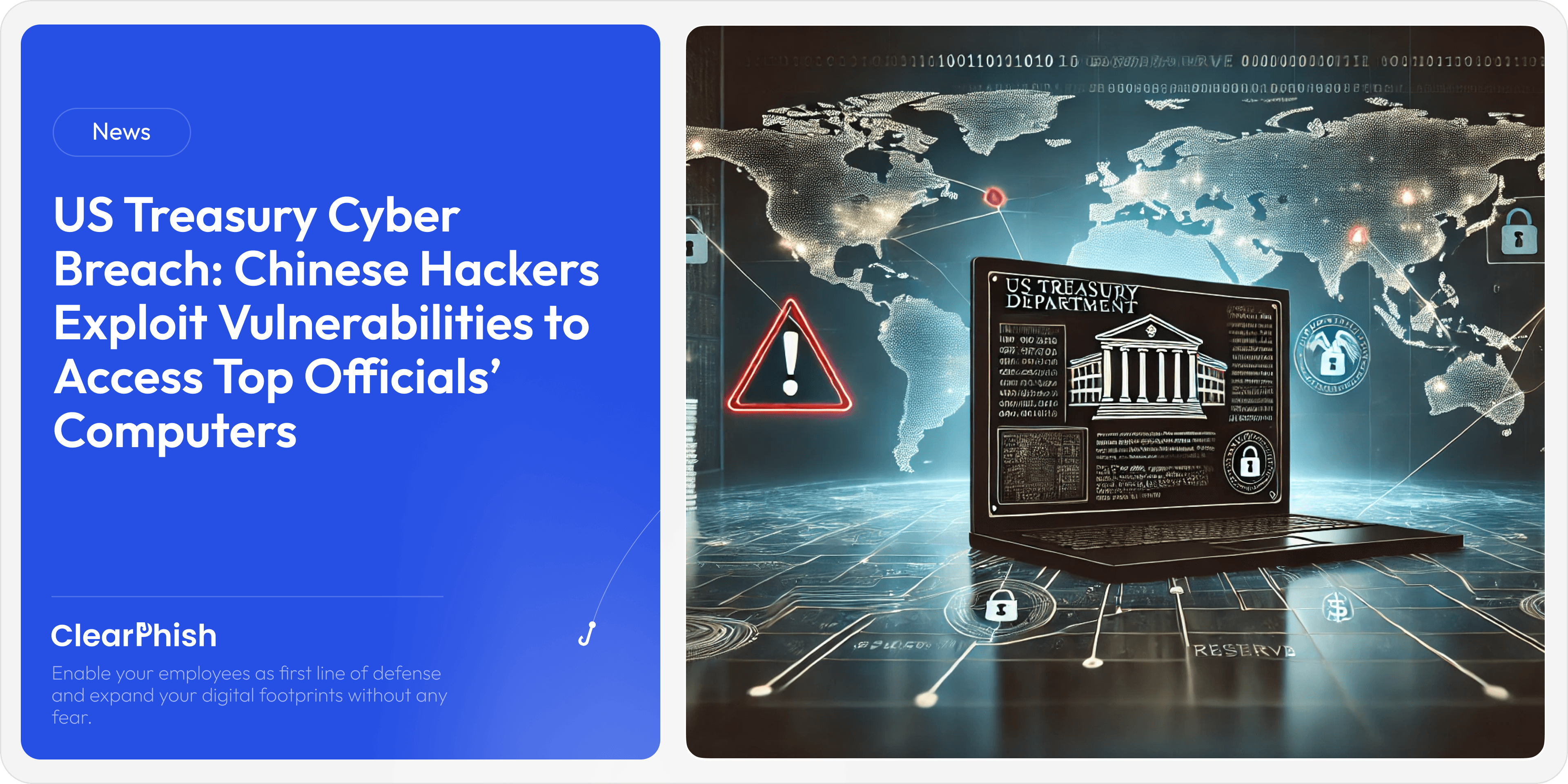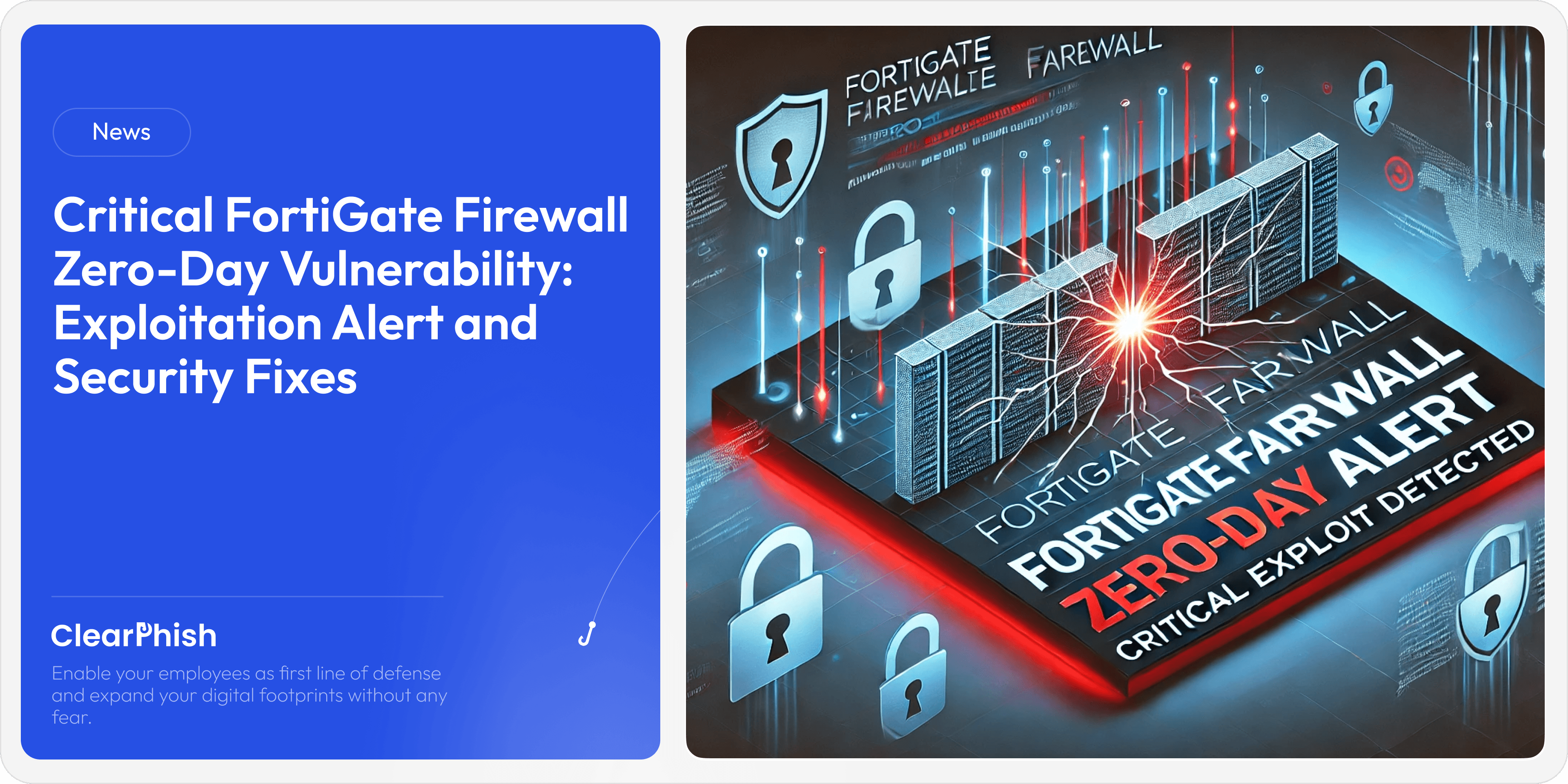Singtel Breach Linked to Volt Typhoon Raises Concerns on National Security
Nov 8, 2024
In a recent cybersecurity breach that has drawn international attention, Singtel, one of the largest telecommunications companies in Southeast Asia, fell victim to a targeted cyberattack. The breach, which has been attributed to Volt Typhoon, a state-affiliated hacking group from China, has raised alarms across the cybersecurity and intelligence communities.
Incident Summary
Singtel’s recent breach highlights vulnerabilities in the digital infrastructure of a nation, exposing potentially sensitive data and leading to heightened scrutiny over cybersecurity measures. According to SC Media, the attack on Singtel is part of a wider wave of cyber espionage attributed to Volt Typhoon, which has been linked to various other intrusions targeting critical infrastructure in countries with strategic interests in the Asia-Pacific region.
The breach reportedly allowed Volt Typhoon access to sensitive Singtel data, potentially compromising national security and placing millions of users’ personal information at risk. Authorities and cybersecurity experts are now investigating the depth of the exposure and the full extent of the attack's impact.

The Role of Volt Typhoon
Volt Typhoon, believed to operate under the Chinese government’s directive, has been associated with espionage activities aimed at disrupting or surveilling critical infrastructure in other countries. Cybersecurity researchers have previously tracked Volt Typhoon’s involvement in targeting utilities, telecommunications, and transportation sectors across multiple regions, indicating a pattern of focusing on sectors essential to national security.
Volt Typhoon is known for its advanced persistent threat (APT) tactics, which are characterized by prolonged attacks that involve stealthy infiltration and data exfiltration. This group often employs sophisticated methods to avoid detection, allowing them to remain undetected within systems for extended periods and gather intelligence on strategically valuable targets.
Implications for National Security and User Privacy
The incident has triggered a review of Singtel’s security protocols and prompted the telecommunications provider to work closely with the Singaporean government and cybersecurity experts to assess and mitigate the damage. National security officials have expressed concern over the potential exposure of data that could be leveraged to compromise critical infrastructure or gain insights into the communications patterns of influential individuals.
The breach also raises privacy concerns for Singtel’s extensive user base, which includes government agencies, businesses, and private individuals. The potential exposure of sensitive data may have far-reaching consequences for user trust and the perception of security within Singapore’s telecommunications infrastructure.
Cybersecurity Community’s Response
In the wake of the Singtel breach, cybersecurity experts are urging telecommunications companies to reinforce their defenses against advanced threats like Volt Typhoon. Recommendations include the adoption of more robust threat detection measures, the regular auditing of security protocols, and the improvement of data encryption standards to minimize the impact of any potential data breaches.
Meanwhile, security organizations are collaborating to share threat intelligence and develop defensive strategies that can better counter the tactics used by APT groups. Enhanced collaboration between governments and private organizations is seen as crucial in combating the rising tide of cyber espionage targeting critical infrastructure.
Ongoing Investigations and Future Preventative Measures
Investigations into the Singtel breach are ongoing as cybersecurity experts work to identify the exact methodologies used by Volt Typhoon and assess any additional vulnerabilities that may have been exposed. Singtel has committed to transparency in addressing the breach and is collaborating with cybersecurity experts to prevent future incidents.
The Singaporean government is also expected to tighten regulations on data protection and cybersecurity, potentially setting new standards for telecommunications companies to secure their networks against sophisticated cyber threats. Experts predict that the repercussions of the Singtel breach will lead to a wave of regulatory reforms aimed at strengthening national security and safeguarding critical infrastructure.
Conclusion
The Singtel breach attributed to Volt Typhoon serves as a stark reminder of the evolving cyber threats facing global critical infrastructure. As state-sponsored attacks become increasingly sophisticated, telecommunications companies and governments must adapt to the changing landscape by investing in advanced cybersecurity solutions and fostering international cooperation. The Singtel incident underscores the pressing need for fortified digital defenses to protect national security and maintain public trust in essential communication networks.
Disclaimer: ClearPhish maintains a strict policy of not participating in the theft, distribution, or handling of stolen data or files. The platform does not engage in exfiltration, downloading, hosting, or reposting any illegally obtained information. Any responsibility or legal inquiries regarding the data should be directed solely at the responsible cybercriminals or attackers, as ClearPhish is not involved in these activities. We encourage parties affected by any breach to seek resolution through legal channels directly with the attackers responsible for such incidents.






